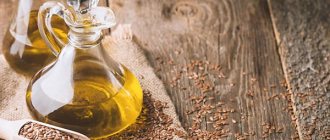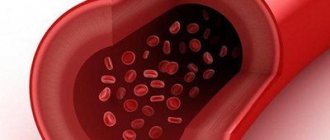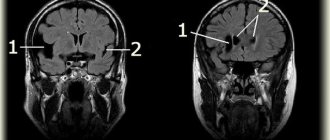Back to list Previous article Next article
21.06.2021
Tags:
useful, flax seeds
5/5 — (1 vote)
Flaxseed is a plant food that contains healthy fats, antioxidants, and fiber. Some call it a "functional food." This means that a person can use it to improve their health.
People grew flax as a crop in ancient Egypt and China. In Asia, it has been used in Ayurvedic medicine for thousands of years.
Today, flaxseed is available in the form of seeds, oil, powder, tablets, capsules and flour. People use it as a dietary supplement to prevent constipation, diabetes, high cholesterol, heart disease, cancer and several other diseases.
Nutrients in flaxseed include:
- lignans,
- antioxidants,
- fiber,
- protein and polyunsaturated fatty acids such as alpha-linolenic acid (ALA), or omega-3.
Consuming these nutrients can help reduce your risk of developing various diseases.
However, there is currently insufficient evidence to support all of these hypotheses. Let's look at what research says about flaxseed and its possible benefits.
Possible beneficial properties of flax
Flaxseed contains several nutrients that may have various health benefits.
Like other plant foods, flaxseed is rich in antioxidants. They can help prevent disease by removing molecules called free radicals from the body. They arise as a result of natural processes and environmental influences. If there are too many free radicals in the body, oxidative stress can develop, which leads to cell damage and disease. Antioxidants help remove free radicals from the body.
Flaxseed is a good source of lignans, which have antioxidant properties. According to some scientists, flaxseed may be more than 800 times richer in lignans than most other foods.
The following sections take a closer look at the possible benefits of flaxseed.
Reducing the risk of cancer
Flaxseed contains omega-3 fatty acids. Research shows that they may help prevent the growth of various types of cancer cells. One 2013 study found a lower incidence of breast cancer among women who regularly consumed flaxseed.
Additionally, in 2021, the review authors concluded that flaxseed may help reduce the risk of developing breast cancer after menopause.
Lignans are a type of phytoestrogens, which are plant-derived nutrients that act similarly to estrogen. There was previously concern that phytoestrogens might increase the risk of breast cancer, but recent research suggests they play a protective role.
Normalize cholesterol levels and improve heart health
The American Heart Association (AHA) recommends eating more fiber and omega-3s to promote heart health. Lignans may also help prevent cardiovascular disease. Flaxseed contains all of these nutrients.
Flaxseed also contains phytosterols. They are similar in structure to cholesterol, but they help prevent cholesterol from being absorbed in the intestines.
Therefore, consuming phytosterols may help lower the levels of low-density lipoprotein (LDL), or “bad” cholesterol, in the body.
In 2010, researchers studied the effect of flaxseed on cholesterol levels in men. Participants took a 20 mg lignan capsule, a 100 mg capsule, or a placebo for 12 weeks. After taking lignans, cholesterol levels decreased, especially in those who took the 100 mg capsules.
Researchers in a 2012 study of 17 people found that eating flaxseed lowered cholesterol and helped the body eliminate fat, although they noted that overall diet may also play a role. A team of researchers suggested that flaxseed may be beneficial for lowering cholesterol levels.
Some scientists have also linked omega-3 oils, commonly found in fatty fish, to reduced cardiovascular risk. The researchers suggested that flaxseed could provide an alternative to marine sources of omega-3s.
Relieving Arthritis Symptoms
According to the Arthritis Foundation, flaxseed may help reduce joint pain and stiffness . Some people take it for rheumatoid arthritis, lupus, and Raynaud's phenomenon.
Reducing hot flashes
In 2007, a group of scientists published results suggesting that flaxseed may help reduce the frequency or severity of hot flashes in women not using estrogen therapy during menopause.
However, in 2012, following further research, the same group of scientists concluded that flaxseed actually had no effect.
Increased blood sugar levels
Lignans and other phytoestrogens may help reduce the risk of developing chronic diseases such as diabetes.
In 2013, scientists gave 25 people 0g, 13g, or 26g of flaxseed every day for 12 weeks. Participants had prediabetes and were either obese or overweight men or women who had experienced menopause.
The 13 g dose was found to reduce glucose and insulin levels and improve insulin sensitivity, while other doses had no such effect.
Additionally, a 2021 study in rodents found that compounds found in flaxseed may help reduce the incidence of type 1 diabetes and delay the onset of type 2 diabetes. However, these results may not apply to humans.
That same year, 99 people with prediabetes took 40g or 20g of flaxseed or no flaxseed and a placebo every day for 12 weeks. Eating flaxseed was found to lower blood pressure, but did not improve blood sugar levels or insulin resistance.
The benefits of flaxseed for diabetes symptoms remain unclear.
Preventing constipation
Flaxseed is a good source of insoluble fiber, which does not dissolve in water but remains in the digestive tract after eating. There it absorbs water and expands in volume, which can facilitate regular food intake.
However, the National Center for Complementary and Integrative Health (NCCIH) says there is little evidence that flaxseed helps relieve constipation.
The NCCIH adds that eating flaxseed with a little water can worsen constipation and lead to intestinal blockage.
Additionally, too much flaxseed or flaxseed oil can cause diarrhea.
Reducing exposure to radiation
In 2013, scientists found evidence that dietary lignans from flaxseed help mice recover from radiation exposure.
Rodents that consumed lignans had lower levels of organ inflammation, oxidative damage and fibrosis, as well as higher survival rates compared to those that did not consume them.
If further human trials show similar results, flaxseed lignans could help treat lung problems after radiation or radiotherapy.
Other diseases
currently funding research to find out if the nutrients found in flaxseed can help with:
- ovarian cancer;
- cardiovascular diseases;
- metabolic syndrome
- diabetes;
- asthma;
- inflammation of organs.
Uses of flaxseed in Ayurvedic medicine include:
- strengthening general health;
- restoration of skin pH balance;
- prevention of chronic diseases such as diabetes, atherosclerosis and arthritis;
- providing protection against cancer.
List of medications
Groups of hepatoprotectors are divided depending on their composition.
Group I: milk thistle flavonoids can include both natural extracts from plants and those produced synthetically:
- Legalon;
- Karsil;
- Gepabene;
- Silimar.
These products contain a substance from milk thistle - silymarin (silibinin). It protects and stabilizes cell membranes. Milk thistle has a powerful antitoxic effect and can help with poisoning with toadstool. True, in this case a modification with intravenous administration is used. It also has antioxidant and metabolic effects and accelerates the regeneration of hepatocytes. The formation of scar tissue in the organ slows down.
Cholestasis, that is, obstructed outflow of bile, may be a contraindication for use. If this is ignored, drug congestion may worsen.
Usually the course of treatment is about 4 weeks, then take a break.
Group II: other flavonoids, except milk thistle:
- Katergen;
- Chophytol;
- LIV 52;
- Hepaliv.
Chophytol has a choleretic and hepatoprotective effect due to the content of artichoke leaf extract. It can also reduce the level of “bad” cholesterol in the blood if the level is initially high. The advantages of the drug include its low toxicity.
Liv 52 helps strengthen the liver's defenses against toxins and contains components widely used in Indian medicine. But the use of the drug in the acute inflammatory phase is unsafe and can increase inflammation. Therefore, it is recommended to use the drug when the regeneration phase is active and the liver needs support.
Group III: hepatoprotectors from animal organs:
- Hepatosan;
- Sirepar.
Hepatnosan – dried animal hepatocytes. In the intestines it absorbs toxins. Once digested, the nutritional components of the cells are absorbed and delivered to the liver. They work as protective factors at the level of liver cells and restore the activity of hepatocytes. The drug helps accelerate reparative processes.
Sirepar is a hydrolyzate of cattle liver extract. Contains 10 mg of cyanocobalamin per ml. Promotes liver regeneration and has a cleansing effect. It should not be used during the active phase of the disease, as the inflammatory process may intensify. It is taken for chronic hepatitis and cirrhosis, poisoning with toxins and drugs.
Some drugs should not be used during the active phase of the disease, as the inflammatory process may intensify.
Group IV: drugs containing essential phospholipids:
- Essentiale forte;
- Essliver forte;
- Phosphogliv forte.
Phospholipids, including phosphatidylcholine, are the most important component, from which most of the membranes of the liver cells themselves consist, like bricks. Phospholipids have been isolated and studied for almost 50 years, various experiments have been carried out. By restoring cell membranes, the liver normalizes its function. They are used for a very wide range of diseases. The course of treatment usually lasts about 3 months in the absence of contraindications and undesirable effects.
Funds from other groups not included in the first four:
- Lipoic acid;
- Hepa-mertz;
- Non-steroidal anabolics (methyluracil, sodium nucleinate);
- Ursofalk;
- Heptral.
From this group, we will analyze in detail Ursofalk, as a drug that is widely used among doctors. The active substance (ursodeoxycholic acid) helps protect the organ and has a choleretic effect. Used to dissolve gallstones. Reduces toxic effects on the epithelium of the bile ducts in the liver and hepatocyte membranes. Facilitates the removal of bile from the ducts, thereby facilitating the removal of toxins.
It has contraindications in the form of a non-functioning gallbladder, inflammatory bowel diseases, bile ducts, gallstones with a high calcium content (visible on an x-ray), in general, any conditions that will interfere with the increased outflow of bile from the liver. Also cirrhosis is in the stage of decompensation.
Nutritional value of flaxseed
According to the USDA, a 7-gram tablespoon of ground flaxseed contains:
- energy: 37.4 calories
- protein: 1.28 g
- fat: 2.95 g
- carbohydrates: 2.02 g
- fiber: 1.91 g
- calcium: 17.8 mg
- magnesium: 27.4 mg
- phosphorus: 44.9 mg
- potassium: 56.9 mg
- folate: 6.09 micrograms (mcg)
- lutein and zeaxanthin: 45.6 mcg
A teaspoon of flaxseed also contains traces of various vitamins and minerals, but not in significant quantities. It also contains lignans, tryptophan, lysine, tyrosine and valine, as well as healthy fats, mostly unsaturated.
People should try to avoid whole flaxseed and consume it in ground form, as the intestines may not be able to absorb the nutrients contained in whole flaxseed.
What and how to eat to avoid stones?
Promotes the formation of stones. Fast food, meat (especially fatty meat), sugar and other easily digestible carbohydrates (sweets, flour, soda), low fiber intake, very low-calorie diets (up to 1500 kcal per day), high fructose intake (diabetic foods, honey, fructose soda), beans and other legumes, vitamin C deficiency, overeating (excess calorie intake), prolonged fasting.
Protects against the formation of stones. Monounsaturated and polyunsaturated fats (vegetable oils), nuts, fiber (vegetables, fruits and whole grains), calcium (dairy products), moderate alcohol consumption containing no more than 20-40 g of pure alcohol per day, coffee and caffeine, vitamin C and foods rich in it, a regular diet, a vegetarian diet, fish and fish oil, with low-calorie diets it is important to consume enough fat (7-10 g per day).
Risks
The nutrients contained in flaxseed may not be beneficial for everyone. People should avoid flaxseed products or consult a doctor first if they:
- use blood thinners such as warfarin (Coumadin) or aspirin;
- use non-steroidal anti-inflammatory drugs;
- take cholesterol-lowering medications;
- have hormone-sensitive breast or uterine cancer;
- are pregnant or breastfeeding;
- suffer from an allergy to flaxseed.
In general, people who eat flaxseed should avoid raw and unripe flaxseeds, as they may contain toxic compounds. Consume flaxseed ground and with plenty of liquid to prevent digestive problems.
Buy only small bottles of flaxseed oil in dark bottles and store them in the refrigerator, as the oil can spoil quickly. Also, do not use oil after the expiration date stated on the label.
Avoid heating flaxseed oil when cooking. Add oil to already prepared dishes and do not heat it in the microwave.
Conclusion
There are many hepatoprotectors, they differ in composition and mechanism of action. Doctors have an ambiguous attitude towards them; many of them are used and produced only for the territory of post-Soviet countries. Sometimes you can find reviews that a person, after quitting an alcohol binge, drank a certain drug for 3 months and his tests improved. This could have happened not because of the drug, but because the toxins stopped affecting the liver, and it was able to recover to a certain extent.
When exposure to toxins ceases, the liver itself can recover to a certain extent.
The main thing in treating the liver is not taking medications to compensate for the damage we cause ourselves, but stopping exposure to toxins and other destructive factors. That is, you need to give up alcohol, smoking and extra pounds (the risk of non-alcoholic fatty hepatosis). Because by alternating courses of medications with an unhealthy lifestyle, we create the illusion of well-being. If you suspect that something is wrong with your liver, be sure to consult a doctor. Incorrect self-medication for liver problems can only cause harm.
Diet Tips
Flaxseed can be consumed ground, in oil form, or in capsules.
It is also found in ready-to-eat foods such as muffins and other baked goods, pasta, snack bars and alternative milks.
Ground flaxseed can be added to:
- breakfast cereals,
- smoothie,
- soups and stews,
- salads and sandwiches,
- yoghurts.
You can also add a spoonful of flaxseed to the muffin mixture or use it to coat chicken instead of breadcrumbs.
However, too much flaxseed can give the food a bitter taste, which some people may not like. One solution is to start with a small amount and gradually add to taste.
Tangle of diseases
And as numerous studies show, proper nutrition can help with this. The role of heredity in the development of this disease is 25%. And, therefore, nutrition and lifestyle can play a big role in its prevention. In addition, such a diet will help protect against many other diseases. After all, such gallstones are tied into one “tangle” with other metabolic diseases - metabolic syndrome, obesity, diabetes, dyslipidemia (increased cholesterol and blood lipids).
Can flaxseed oil be used in cooking or in salads?
Flaxseed oil can be used in cooking as long as it is not heated. It is best to add it to already prepared dishes and not heat it in the microwave. This is because heating the oil causes it to break down into a potentially harmful form. Flaxseed oil can be used to make salad dressings, but it can quickly go bad. Store it in the refrigerator in a dark-colored bottle and do not use it after the expiration date.
Back to list Previous article Next article











